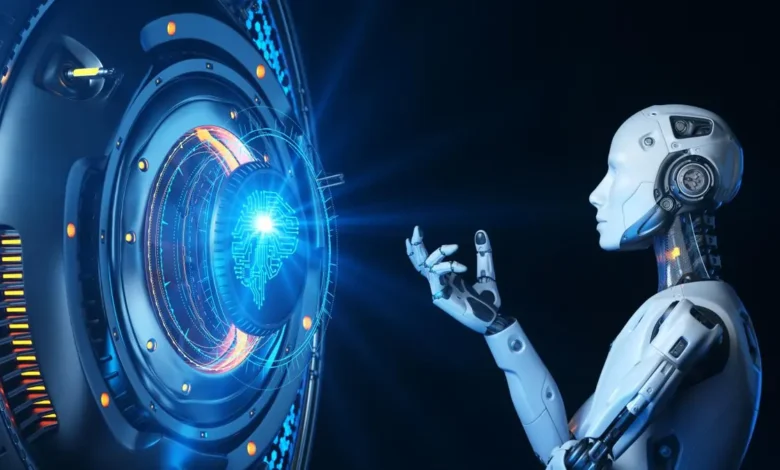Alaya AI: Revolutionizing the Future of Artificial Intelligence

Artificial intelligence is evolving at a rapid pace, transforming industries and reshaping how data is managed. One of the most exciting developments in this field is Alaya AI. This innovative platform is setting new benchmarks for decentralized AI and data management, ensuring efficiency, security, and accessibility for businesses and individuals alike. By leveraging cutting-edge technology, is making AI training and development more efficient.
Understanding Alaya AI
Alaya AI is a platform designed to optimize data collection and AI training using decentralized methods. Traditional AI development often faces challenges such as biased datasets, limited accessibility, and high computational costs. addresses these issues by creating a collaborative environment where data is collected, processed, and utilized in a decentralized manner. This approach not only enhances the quality of AI models but also ensures data security and fairness.
The platform incorporates machine learning and blockchain technology, allowing users to contribute data in exchange for incentives. This ensures a diverse and high-quality dataset, which is essential for training robust AI models. By decentralizing the data collection process, Alaya AI eliminates many of the inefficiencies present in traditional AI development workflows.
Key Features of Alaya AI
Decentralized Data Collection
One of the standout features of Alaya AI is its decentralized approach to data collection. Instead of relying on centralized entities to gather and process data, the platform allows contributors from different backgrounds to submit valuable data. This ensures that the dataset used for AI training is diverse, unbiased, and more representative of real-world scenarios.
This decentralized model also improves data security. Since the data is stored on a blockchain, it remains tamper-proof and verifiable. Users can trust that their contributions are being used ethically and transparently. This model also allows for greater participation, making AI training accessible to a broader audience.
AI Training Optimization
Alaya AI utilizes advanced algorithms to refine and optimize AI training. The platform ensures that the datasets used for machine learning are of high quality, reducing errors and improving model accuracy. By leveraging AI-powered data validation techniques, guarantees that only reliable and well-annotated data is used in training.
This optimization process significantly reduces the time and resources required to train AI models. Traditional AI development often requires extensive computing power and expensive hardware, but streamlines the process, making it more efficient and cost-effective.
The Impact of Alaya AI on Industries
Healthcare
The healthcare industry relies heavily on AI for diagnostics, treatment recommendations, and medical research. Alaya AI enhances this field by providing high-quality, decentralized medical datasets. This allows for more accurate AI models that can detect diseases, suggest treatment plans, and improve patient outcomes.
By using decentralized data collection methods, ensures that medical datasets are comprehensive and diverse. This minimizes biases in AI-driven healthcare solutions and helps medical professionals make more informed decisions.
Finance
In the financial sector, Alaya AI is transforming fraud detection, risk assessment, and customer service automation. The platform enables financial institutions to access reliable datasets that enhance AI-driven decision-making. By leveraging secure blockchain technology,ensures that sensitive financial data remains protected and verifiable.
The use of high-quality AI models allows banks and financial institutions to detect fraudulent activities more effectively. Additionally, AI-powered chatbots and virtual assistants trained on datasets improve customer service by providing more accurate responses and recommendations.
The Role of Blockchain in Alaya AI

Blockchain technology plays a crucial role in Alaya AI’s infrastructure. By utilizing decentralized ledgers, the platform ensures data transparency, security, and immutability. This approach eliminates the risks associated with centralized data storage, such as unauthorized access, manipulation, or data loss.
Moreover, blockchain enables fair compensation for data contributors. Users who provide valuable datasets are rewarded through a token-based system, incentivizing participation and ensuring a continuous flow of high-quality data. This gamified reward mechanism fosters a collaborative environment where AI development becomes a shared effort.
Alaya AI and Ethical AI Development
One of the most significant challenges in AI development is ensuring ethical data usage. Alaya AI prioritizes ethical considerations by promoting transparency and fairness in data collection. By decentralizing the process, the platform reduces biases that often arise from centralized data sources.
Furthermore, provides users with greater control over their data. Contributors can track how their data is being used, ensuring that it aligns with ethical guidelines. This approach fosters trust between data providers and AI developers, paving the way for more responsible AI applications.
The Future of Alaya AI
As AI technology continues to evolve, Alaya AI is poised to play a pivotal role in shaping its future. The platform’s innovative approach to decentralized data collection and AI training is set to revolutionize various industries. With ongoing advancements in machine learning and blockchain integration, is continuously improving its capabilities and expanding its reach.
Looking ahead, Alaya AI aims to introduce new features that enhance user experience and streamline AI development further. By fostering a global community of data contributors and AI researchers, the platform is driving the future of artificial intelligence in a more ethical, transparent, and efficient direction.
Conclusion
Alaya AI is more than just an AI platform—it is a game-changer in the world of artificial intelligence and data management. By leveraging decentralization, blockchain technology, and advanced AI training methodologies, the platform is addressing critical challenges in the AI ecosystem. Whether in healthcare, finance, or other industries, is paving the way for a smarter, fairer, and more efficient AI future. As the platform continues to evolve, its impact on AI development and ethical data management will only grow stronger.





